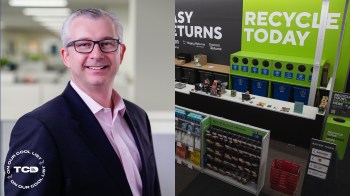Colorado has eliminated more than a billion single-use bags from its system, sparking optimism that its gorgeous scenery, parks, and waters will be more pristine for many years to come.
In January, 9News reported that the Centennial State used an estimated 1.5 to 1.8 billion fewer plastic bags in 2023 after the Plastic Pollution Reduction Act was passed in 2021 as part of House Bill 21-1162, according to nonprofit Eco-Cycle.
The recycling center, which advocates for the development and implementation of zero-waste solutions, supported the Plastic Pollution Reduction Act, which partially went into effect in 2023.
At the beginning of that year, the state required major retailers to begin charging 10 cents for every plastic or paper bag, hoping that it would promote the use of reusable bags.
Only businesses with more than three locations had to charge the fee. Bag fee collection has generated around $5 million in the city of Denver (which charged fees since 2021, ahead of the state act), some of which went toward purchasing reusable bags for community groups to distribute as part of educational programs about single-use waste, as 9News reported.
"It took many years to get it passed, but we have become now a leader in the nation," Eco-Cycle director of policy and community campaigns Randy Moorman told the outlet. "...We've seen dramatic change in how we as customers go into our stores and use products like this. It's become a pretty easy and regular change that we have accepted."
Derived from the same fossil fuels as motor oil and gasoline, plastic bags contain harmful chemicals that contaminate our soil and waters. According to The World Counts, single-use bags can pollute our environment for as much as 1,000 years after an average of 12 minutes of use.
"These bags get into our creeks, they get into our parks, you can see them in our trees, and they create a hazard for wildlife," Moorman told 9News. "But also for humans … [microplastics] get into the water we drink, into the air we breathe and even eventually get into the food we eat."
Fortunately, researchers have discovered multiple ways to remove microplastics from our drinking water. Meanwhile, an egg white-based mixture may help affordably remove the tiny toxic particles from our oceans, eliminating a source of exposure in our food supply.
Colorado's recent success is yet another example of how eco-friendly policymaking can support scientific endeavors and ultimately lead to a brighter future.
Moorman told 9News that even more plastic reduction should occur in 2024 after another part of the act went into effect banning retailers from providing single-use plastic bags. Food establishments also cannot distribute Styrofoam containers after they use up their previously purchased supplies.
"I think it's just phenomenal that we have been able in a relatively short amount of time make some dramatic changes that are not only going to have an impact on the day-to-day in our environment and health but on future generations, so that's really exciting," Moorman said.
Join our free newsletter for cool news and actionable info that makes it easy to help yourself while helping the planet.









